Here's a simple WolframCloud computation:
The answer is 1 when 0 < x < 1 is True and 0 when 0 < x < 1 is False, so why in the world does the output associate True with 0?
(In WolframAlpha, executing Limit[Boole[0<x<1] (1 + 1/a) ,a->Infinity] displays the correct answer, i.e., Boole[0<x<1], but the strange result is still found when you click "Open code".)
EDIT: An alternative form that gives the same result is
f[x_,a_]:=Boole[0<x<1] (1 + 1/a)
Limit[f[x,a],a->Infinity]
The output should be Boole[0<x<1], but instead is the strangeness involving True.

